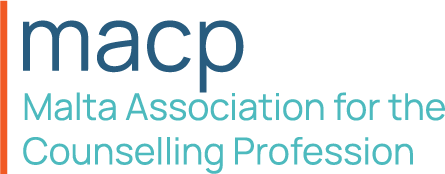In the Maltese context, counselling is defined by three entities (MACP, 2016; CPA, 2015; Council of the Counselling Profession [CCP], 2016) that all indicate that counselling: ‘(a) Is a means of relating and responding to clients with the aim of giving them a safe space and time to explore their feelings, beliefs, thoughts and behaviour (b) Can help develop and/or broaden clients’ thoughts and awareness (c) Explores alternatives for clients to take informed decisions (d) May be held with individuals, couples, families and groups’ (Marlene Cauchi, Ruth Falzon, Patricia Micallef, and Moira Sammut, 2017, p. 367).
Counselling in Malta was first introduced in the 1950s by the Catholic Church to provide support for couples and families. Following that, counselling was initiated in schools by two teachers in the 1970s. Such services in schools further increased through the 1980s and 1990s (Galea, 2012; Sultana, 1992). This was followed through with a felt need for and hence the setting up of the Malta Association for the Counselling Profession (Malta Association for the Counselling Profession [MACP], 2016) in January 2002. MACP started to promote counselling in areas outside of schools. In 2008, the University of Malta (UoM) introduced the first master’s level course in counselling. In Malta, Counselling is uniquely regulated by parliament as a warranted profession. The Counselling Profession Act (CPA) was tabled in parliament by the Ministry for the Family and Social Solidarity in 2015.
Nowadays in schools, counsellors work in both primary and secondary settings, normally within one college. They work hand in hand with guidance teachers, social workers, psychologists, psychotherapists and other mental health professionals to provide psychosocial services to students.
Counselling in Malta is continually being introduced in numerous other settings outside of the Education system. Such occurrence is happening within organisations run by the state, NGO’s as well as in private practice.
In Malta, supervision is a must for all counsellors. In fact, evidence of ongoing supervision should be presented to the CCP in order to become legally warranted (Parliamentary Questions on Counselling [PQ] 21138, pq.gov. mt, 2015; CPA (2015), and such practice should be kept on throughout the counsellor’s career.
In spite of the fact that dual relationships are often considered unethical as they impact counsellors’ objectivity and competency, such reality is inevitable in a small-island context like Malta (Stockman, 1990; Werth, Hastings, & Riding-Malon, 2010). Counsellors might meet client doing errands or in social events. Counsellors should be aware of this at all times and should set boundaries at the start of the therapeutic journey.
